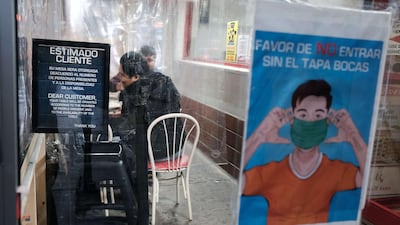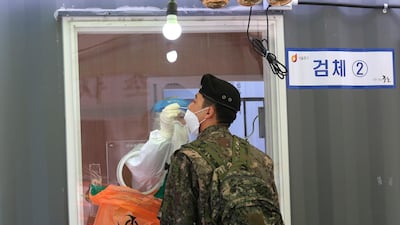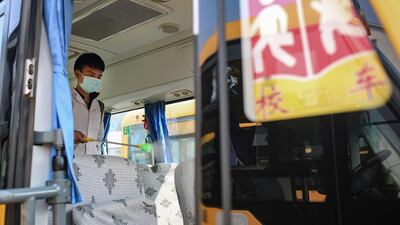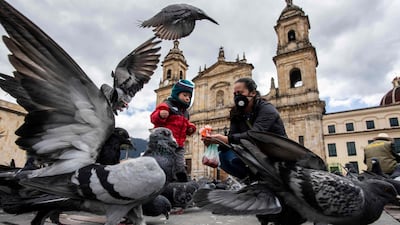Ghana received the first shipment of Covid-19 vaccines from the Covax scheme on Wednesday, a global scheme to procure and distribute inoculations free.
Covax, launched last April to help ensure a fairer distribution of coronavirus vaccines between rich and poor nations, said it would deliver two billion doses to its members by the end of the year.
"We are pleased that Ghana has become the first country to receive the Covid-19 vaccines from the Covax facility," Unicef, which organised the shipment from Mumbai, said in a joint statement with the World Health Organisation – both of whom are Covax backers.

It said the 600,000 doses of the AstraZeneca/Oxford vaccine licensed by the world's largest vaccine manufacturer, the Serum Institute of India, are part of an initial tranche of deliveries "headed to several low and middle-income countries".
The Emirates flight carrying the vaccines touched down at Accra's Kotoka International Airport shortly after 0740 GMT, in images broadcast on television.
Covax said it aimed to deliver 2,412,000 doses of the vaccine to Ghana.
The country's food and drug authority authorised the use of the vaccines made in India as well as the Sputnik V vaccine from Russia, local media reported.
The West African nation has recorded 80,759 Covid-19 cases and 582 deaths since the start of the pandemic. These figures are believed to fall short of the real toll because the number of tests is low.
Health workers and other frontline staff are meant to be among the first to receive doses.
"In the days ahead, frontline workers will begin to receive vaccines," Unicef executive director Henrietta Fore said.
"The next phase in the fight against this disease can begin – the ramping up of the largest immunisation campaign in history."
Covax, led by Gavi the Vaccine Alliance, the WHO and the Coalition for Epidemic Preparedness Innovations, had anticipated a first round of deliveries to take place in March, with some early shipments occurring in late February.
The African continent, relatively spared by the pandemic, was the last bar Oceania to reach the threshold of 100,000 deaths, which Europe crossed in April 2020.
At the height of the pandemic in January, Africa had 906 deaths per day.
To help speed up immunisation of the continent's 1.3 billion people, the African Union said it had secured 270 million doses of anti-Covid vaccines for delivery this year.
The WHO on Monday criticised wealthy countries for hogging Covid vaccines and hindering the pathway for poorer nations to get them too.
WHO director general Tedros Adhanom Ghebreyesus said some rich countries' direct deals with manufacturers had meant that previously agreed vaccine allocations for poorer countries, via the Covax programme, were being reduced.
About 145 participating economies are scheduled to receive 337.2 million doses – enough to vaccinate a little over 3 per cent of their combined populations.
Covax said it hopes to raise that proportion to about 27 per cent in lower-income countries by the end of December.
New variants of the virus, including in neighbouring Nigeria, are spreading across the continent with the UK and South African variants recorded in Ghana.
"It is strongly recommended for countries to use the AstraZeneca vaccine even if the ... new variants are present," the WHO said last week.
In Ghana, schools reopened in January after a 10-month closure, but large social gatherings are banned and land and sea borders have been closed since March 2020.
Ghana's economic growth is expected to plummet this year to its lowest in three decades, 0.9 per cent, according to the International Monetary Fund, from 6.5 per cent in 2019.



























